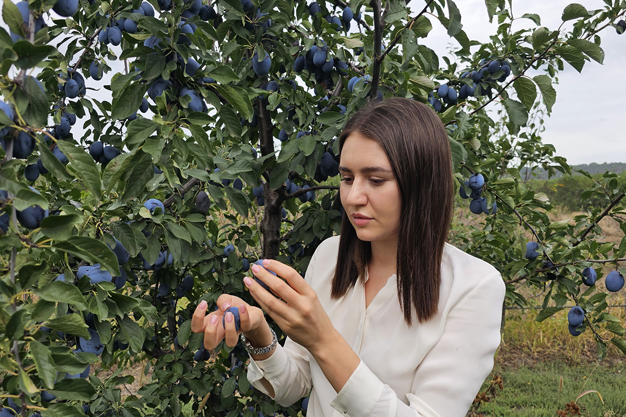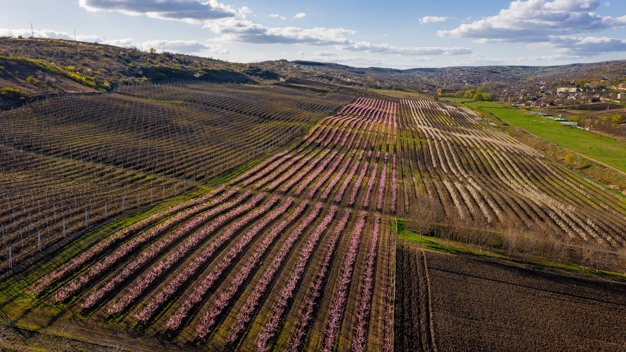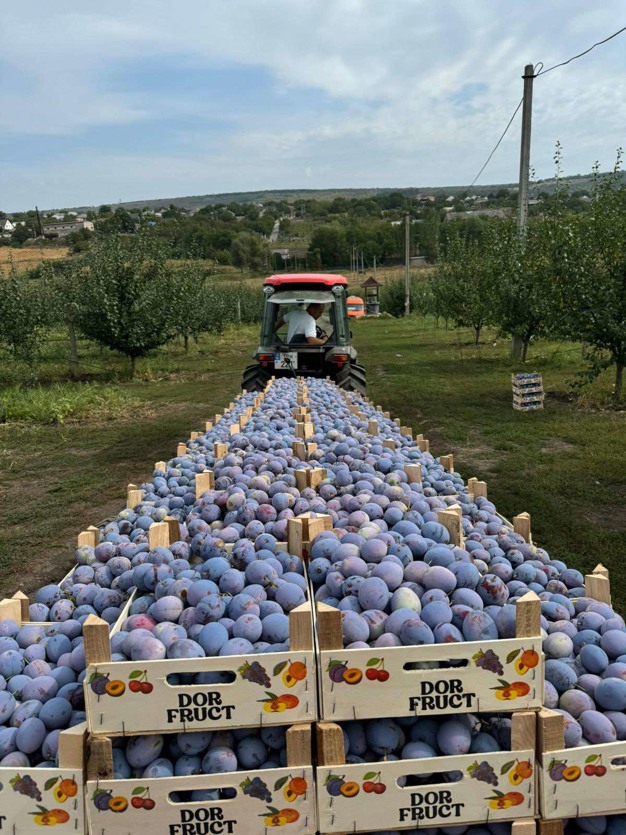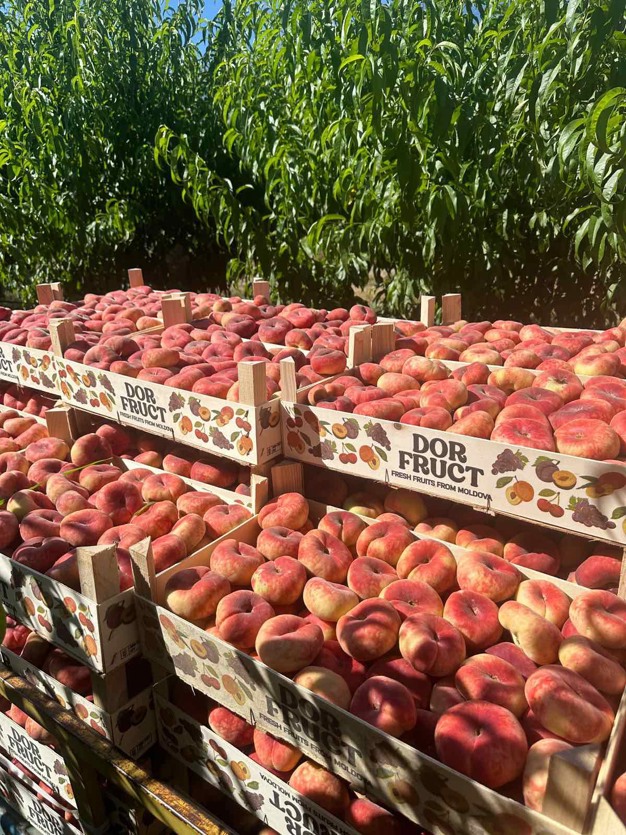Many young people have left Moldova, seeking adventure abroad. Little wonder, since it is Europe's poorest country with few job opportunities, especially in the countryside, and offers limited prospects of a decent wage. Dorina Tataru, too, hoped to secure her future with economic studies in EU member Romania. But when the pandemic struck, her father Ion asked her to come home and grow fruit with him on the fertile hillside overlooking the parental home. She quickly jumped at the chance.
Her knowledge of English and economic background means Dorina sees to the overseas marketing of plums, saturn peaches, and cherries. Their company, Dor Fruct - a name that harks to her first name - cultivates on 30+ hectares. Dorina belongs to the ever-growing group of young enterprising Moldovans determined to transform their country into a place where modernity and prosperity are no longer words used just in empty promises.

Sales manager Dorina Tataru
Own trucks
"My father has more than 20 years of fruit trade experience," begins Dorina, "but farming was something new to him. To spread the risks, both cultivation and marketing-wise, we decided to diversify right off the bat. We have 12 hectares of cherries and ten each of saturn peaches and plums. We supplement that supply with volumes we source from other growers, including grapes and apricots. We sell most of the fruit to the European Union market. We transport it there in our own trucks - we have six - or in those of a logistics partner."

Dor Fruct's fields of cherises, saturn peaches and plums
Cracked cherries
This warm spring posed no problems for Dor Fruct's stone fruit, thanks to a well-functioning irrigation system. The past season's heavy rain, just before harvesting, did, though, affect their cherries' quality as well as quantity. "We had 130 mm in four days. We only have anti-hail nets, but even plastic covering that could've stopped the rain from hitting the fruit probably wouldn't have prevented all the cracking," says the sales manager.
Despite this year's sometimes heavy rain, most recently during storm Boris, she says water availability is a challenge that must be considered. "Those setting up crops anywhere must first see if they can get enough water for irrigation. It's too risky to grow fruit on dry land; that's guaranteed to result in too-small sizes. We've built a large water reservoir about 100 m from our plots."

Harvesting plums
Favorable plum sales window
They chose to plant various kinds of stone fruit and, per kind, different varieties. That spreads the harvest, thus giving pickers - for now, people from the local and nearby villages - work for the whole summer. "In cherries, we're talking about Kordia, Regina, and Royal Helen, in plums, it's Stanley, President, Tophit, and Blue Moon," Dorina explains.
Cherries, for Dor Fruct has a good customer in the Netherlands, and some regular buyers in Germany, Romania, and Croatia have a small sales window. For plums, though, that is somewhat wider. "Moldova has plums available until November, which is an advantage over, say, Serbia and Macedonia. Our fruit is generally of better quality and stores well. There's no denying that electricity for storage is pricey, but in November, we get a much better price for our plums."
Next: apricots
Class II products go to the local market for processing. "However, we're fully committed to quality, and if you have sufficient volumes of that, export is always more advantageous than selling domestically," states Dorina, adding that they want to establish an apricot orchard, too. "We already export others' apricots; now we want to grow them ourselves. It's always better to monitor all the processes yourself. We control all chain stages for several crops from cultivation, storage, packaging, and even transportation."

Saturn peaches
New building
Dad, Ion, nonetheless, admits that Moldova lags in terms of post-harvest infrastructure. "The fertility of our soil and the many hours of sunshine in our region manifest themselves in excellent flavor, but that's not enough to meet the demands of a market like the EU. We rent cold rooms and use a sorting line in a nearby warehouse, but we've already started building a packing facility with modern equipment, including a hydrocooler for the cherries. It will stand at the foot of the slope where our plots are located," he says.
As for packaging, Dor Fruct supplies its stone fruit in wooden crates and boxes, also under its own brand, Dor Fruct. "When we move into our new premises, these possibilities will be much wider. We'll then gradually expand, both in cultivating and exporting our fruit and product from contract growers," states Dorina. She hopes that, in the future, the whole family, including her mother and two sisters, can be part of this beautiful project. "We dream of building this as a family. And so to help the local community and the country move forward," she concludes.
Dor Fruct is GlobalGAP and GRASP certified and will be at the upcoming Fruit Attraction in Madrid. You can find the company at the joint Moldova Fruct branch organization's stand, 10D18.
 For more information:
For more information:
Dorina Tataru (Sales Manager)
Dor Fruct Group Ltd
Corjova (Dubasari) – Moldova
Mob: +373 693 40 232
[email protected]
https://dorfruct.com/
